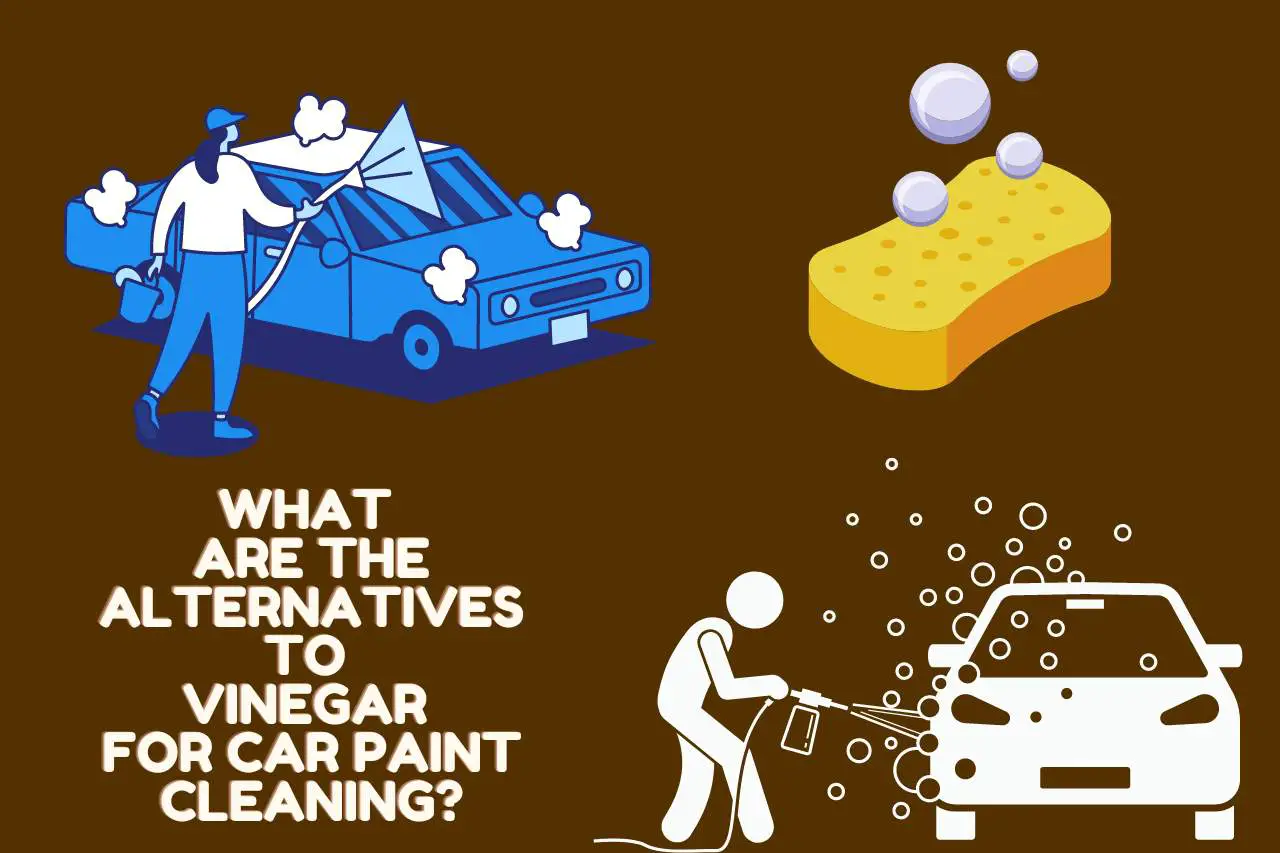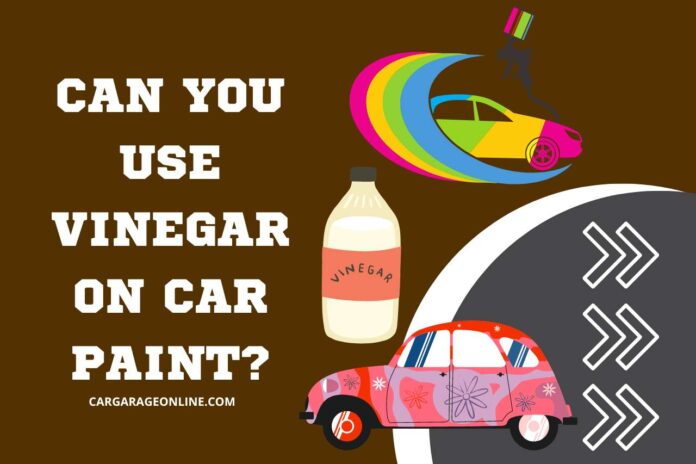Vinegar is used in cooking to brighten the flavour. But it is also used in disinfecting and cleaning most items in the house. Vinegar is one of the best solutions when removing stains from some tools. Can you use vinegar on car paint? Even if vinegar is used in cleaning and removing stains, it is not safe to use it on car paint. It is better to consider the ingredients of any cleaning product before using it on your car paint. In this article, you will learn everything about using vinegar on car paint. (alprazolam)
Can you Use Vinegar on Car Paint?
No, it is generally recommended. So, you can’t use vinegar on car paint because it is not safe. Vinegar is an acidic substance with very low pH values.
Even if nothing happens suddenly, using vinegar on the car paint for cleaning purposes for a long period of time will result in your car paint being dull. Therefore, you should not use vinegar to clean or remove spots on the car paint.
White vinegar is used in cleaning most household items. The pH value of white vinegar is about 2.5. So, it can damage the car paint easily, and it will cost you a lot to bring the appearance and the sparkling nature of the car back to before.
Some people suggest that using diluted vinegar is okay and will not burn the car paint. However, we can’t guarantee that it won’t harm the car paint after using it for a long time. So, it is best to avoid using vinegar on car paint.
How does Vinegar Affect Car Paint?
Vinegar is acidic, and it will burn and corrode the car paint. This will give your car a dull look as vinegar takes all the gloss and shine from the paint.
Vinegar does not contain a lubricant in them. Even if it is mixed with water, it is not slippery as soap and water. So, rubbing the spots after applying vinegar will cause scratches on the paint. And it will cost you more to repair those scratches. Moreover, applying vinegar will result in removing the car wax. And you will need to re-wax the car after applying vinegar for cleaning.
If you have mixed the vinegar with water and applied it on the car to minimize the damages consider the sunlight too.
If there is heavy sunlight or if the vinegar is not completely washed away even after finished cleaning, the water will evaporate, leaving vinegar on the car paint. And it will cause more damage to the car.
What are the Alternatives to Vinegar for Car Paint Cleaning?
The best solution is to use dish soap or car shampoo. They will remove the stains and keep the surface shiny. Using car shampoos or car wash soaps is best because the ingredients of it are safe for the cars.
They are gentle and will not scratch or damage the car. They have a pH level that goes with the car paint, and most of the time, they are neutral.
Also, you can use clay bars. Clay bars can remove embedded grains or dirt from various things, including the over-spraying of paints and environmental deposits. Using clay bars is durable for your vehicle.

Another alternative you can use is waterless car wash products. They are eco-friendly and will not use much water for cleaning. These products include lubricants in them and are available in the market as sprays.
After applying car wash products such as shampoos, soaps, and waterless car wash products, use a microfiber towel to wipe away all the dirt.
Is White Vinegar Good for Car?
No. You should not use white vinegar for the car. White vinegar is a powerful cleaner and also a powerful acid with a pH of about 2.4 or 2.5. Therefore, it can damage the exterior surface of the car if you use it.
Most people will suggest that as a household cleaning item, vinegar is good for cleaning and removing stains from your car. And they will suggest that use white vinegar after diluting (mixing with water). But if you can avoid using it, I can agree that the exterior of your car, including the car paint, will have a long lifespan!
Can I Wash My Car with Soap and Vinegar?
Yes, you can wash your car with soap and vinegar. But it is not recommended as well. But it is safe to apply soap and vinegar for washing your car. Soap will clean the dirt and remove the grime from the surface, while vinegar will remove the stubborn stains and spots.
Before using both of them, you have to dilute them. Otherwise, it will result in harming the surface of your vehicle.
You can use the mixture on a covered part of the car to test whether it can harm the exterior surface of your car. And, you can notice if any discolouration or damage occurred.
You should not keep the mixture for a long time on the surface of the car. This might cause damaging the car paint giving it a dull appearance. And you should immediately remove the dirt before the products will react with each other and become neutral.
Rinse and wash the car thoroughly once you have removed all the stains and dirt from the surface of the car without keeping any residue. Or exposing it to the sunlight will risk damaging the car additionally.
How to Remove Hard Water Spots from Car Paint?
Use any recommended product, such as car shampoo, soap or clay bars, to remove hard water spots from car paint. Most people recommend using vinegar and water for a 1:2 ratio.
Whatever product you use, you have to rub the spots gently using a clean microfiber towel. Then rinse away the product well from the surface of the car.
If you have used vinegar and water to remove the hard water spots, ensure that you have thoroughly washed the mixture away from the car surface. Use wax or a sealant after using vinegar to avoid it harming the exterior of the car, including car paint.
Watch this video,
Video Credits – The Rag Company
You May Also Like
- Xpel tint vs 3M – Which Window Film is Best for Your Car?
- How to Unfreeze Car Doors with Vinegar
- How Much Does A Paint Job Cost For A Truck – Complete Guide







![What Is The Best Penetrating Oil For Seized Engine? [Explained] Best Penetrating Oil For Seized Engine](https://cargarageonline.com/wp-content/uploads/2022/07/Best-Penetrating-Oil-For-Seized-Engine-100x70.jpg)